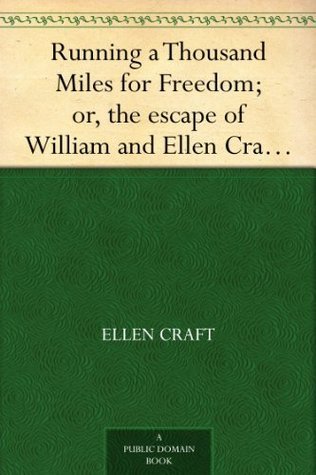What do you think?
Rate this book


72 pages, Kindle Edition
First published January 1, 1860
Some of the best slaveholders will sometimes give their favourite slaves a few days' holiday at Christmas time; so, after no little amount of perseverance on my wife's part, she obtained a pass from her mistress, allowing her to be away for a few days. The cabinet-maker with whom I worked gave me a similar paper, but said that he needed my services very much, and wished me to return as soon as the time granted was up. I thanked him kindly; but somehow I have not been able to make it convenient to return yet; and, as the free air of good old England agrees so well with my wife and our dear little ones, as well as with myself, it is not at all likely we shall return at present to the "peculiar institution" of chains and stripes.The first-person account is tense and swift. The structure is little rocky, as the Crafts felt it necessary to pause on occasion and build their case against slavery, but the explanation of current law adds necessary context to their story, and was especially helpful for this modern reader.
Between 1525 and 1866, in the entire history of the slave trade to the New World, according to the Trans-Atlantic Slave Trade Database, 12.5 million Africans were shipped to the New World. 10.7 million survived the dreaded Middle Passage, disembarking in North America, the Caribbean and South America. The Root, Jan 6, 2014Millions.
It is a realistic accounting of the language pro-slavery forces used to justify the "peculiar institution". It is less well known that the language was used to incite push back from abolitionists, which acted as oil on a fire. It also emboldened other supporters to lash out at anti-slavery forces. It is a pattern to we see repeated today by racists and bigots everywhere. History is not kind to the clergy and the churches that provided cover for the pro-slavery forces. And once freed from the bondage of slavery in the South, we see that the Carters also had to face Northern racism and white supremacy. There is a happy ending though— they lived in relative peace in England for another 20 years.